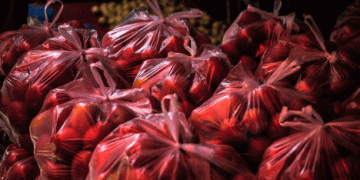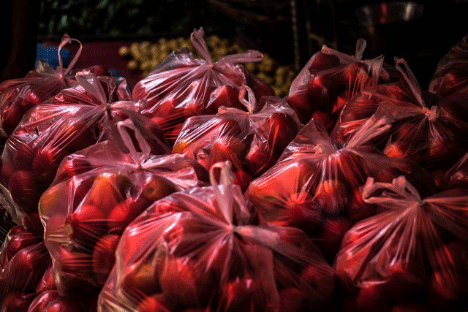At the start of 2024, Kaufland, one of Germany’s major retailers, introduced a fee of one cent per single-use plastic bag for fruits and vegetables. This price hike was marketed as a way to encourage customers to reconsider their plastic consumption and promote more sustainable shopping habits. However, the move has sparked criticism, with environmental groups such as the Deutsche Umwelthilfe (DUH) arguing that this measure is insufficient and simply amounts to “greenwashing.”
Barbara Metz, Federal Director of the DUH, highlighted the scale of the issue, stating that Germany consumes a staggering 2.4 billion single-use plastic bags annually. According to Metz, the imposition of a mere one-cent charge will have little impact on reducing consumption. “A fee as low as this will not lead to a significant behavioral change,” she said. The DUH argues that in order to effectively reduce the use of these bags, the charge should be at least 20 cents per bag, or better yet, the bags should be completely banned.
The European Union’s new packaging regulations, which will ban single-use plastic bags with a thickness of up to 15 micrometers by 2030, already signal a shift in policy. Given this upcoming EU-wide ban, environmental advocates believe that retailers like Kaufland should begin removing plastic bags from their shelves now, rather than waiting until the legislation forces their hand. By continuing to offer plastic bags for a small fee, the DUH argues that Kaufland is merely profiting from the environmental harm these bags cause, rather than actively contributing to the reduction of plastic waste.
Kaufland, in response, defends its decision, claiming the one-cent charge will raise awareness about the environmental impact of single-use plastics and encourage customers to opt for reusable alternatives. However, critics contend that a more proactive stance—such as completely phasing out plastic bags or increasing the charge—would better align with the company’s environmental claims and the EU’s long-term goals.
While Kaufland’s initiative to charge customers for single-use plastic bags may be a step in the right direction, the one-cent fee is unlikely to drive the substantial change needed to reduce plastic consumption. To make a meaningful impact, retailers must go beyond token gestures and adopt more rigorous strategies, such as eliminating single-use plastic bags entirely or implementing higher charges, in line with future regulations. The true challenge lies in fostering a shift toward reusable options that will have a lasting effect on reducing plastic waste.































